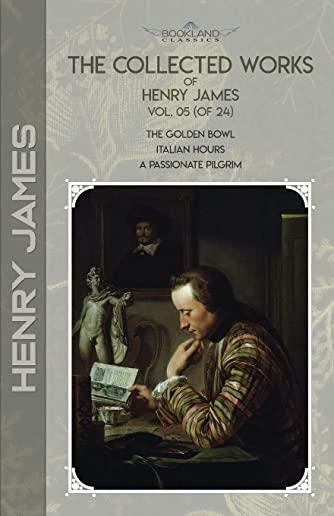
James, Henry
The Golden Bowl is a 1904 novel by Henry James. Set in England, this complex, intense study of marriage and adultery completes what some critics have called the "major phase" of James' career. The Golden Bowl explores the tangle of interrelationships between a father and daughter and their respective spouses.
The novel focuses deeply and almost exclusively on the consciousness of the central characters, with sometimes obsessive detail but also with powerful insight. The title is taken from Ecclesiastes 12: "Or ever the silver cord be loosed, or the golden bowl be broken, or the pitcher be broken at the fountain, or the wheel broken at the cistern. Then shall the dust return to the earth as it was: and the spirit shall return unto God who gave it. Vanity of vanities, saith the preacher; all is vanity."
Prince Amerigo, an impoverished but charismatic Italian nobleman, is in London for his marriage to Maggie Verver, only child of the widower Adam Verver, the fabulously wealthy American financier and art collector. While there, he re-encounters Charlotte Stant, another young American and a former mistress from his days in Rome; they had met in Mrs. Assingham's drawing room. Charlotte is not wealthy, which is one reason they did not marry. Although Maggie and Charlotte have been dear friends since childhood, Maggie does not know of Charlotte and Amerigo's past relationship. Charlotte and Amerigo go shopping together for a wedding present for Maggie. They find a curiosity shop where the shopkeeper offers them an antique gilded crystal bowl. The Prince declines to purchase it, as he suspects it contains a hidden flaw.
Italian Hours is a book of travel writing by Henry James published in 1909. The book collected essays that James had written over nearly forty years about a country he knew and loved well. James extensively revised and sometimes expanded the essays to create a more consistent whole. He also added two new essays and an introduction.
Italian Hours ends with the phrase, "the luxury of loving Italy," and everything in the book indicates that James enjoyed this luxury to the fullest. But he was by no means a blind lover. His opening essay on Venice, for instance, doesn't gloss over the sad conditions of life for the city's people: "Their habitations are decayed; their taxes heavy; their pockets light; their opportunities few."
A Passionate Pilgrim is a novella by Henry James, first published in The Atlantic Monthly in 1871. The story was the earliest fiction that James included in the New York Edition (1907-09) of his works. Set in England, the tale shows James' strong interest in the contrast between the Old World and the New. In fact, the difference between America and Europe erupts into open conflict in the story, which leads to an ironic ending.
The narrator meets fellow American Clement Searle at an old-fashioned London inn. Searle has long wanted to settle in England to escape what he considers his arid life in America. But he is physically ailing, and he's also depressed because his lawyer cannot uphold his claim to a share in a country estate currently owned by Richard Searle, a distant relation. Clement and the narrator visit the estate, where they meet the ethereal Miss Searle, who supports Clement's cause.







